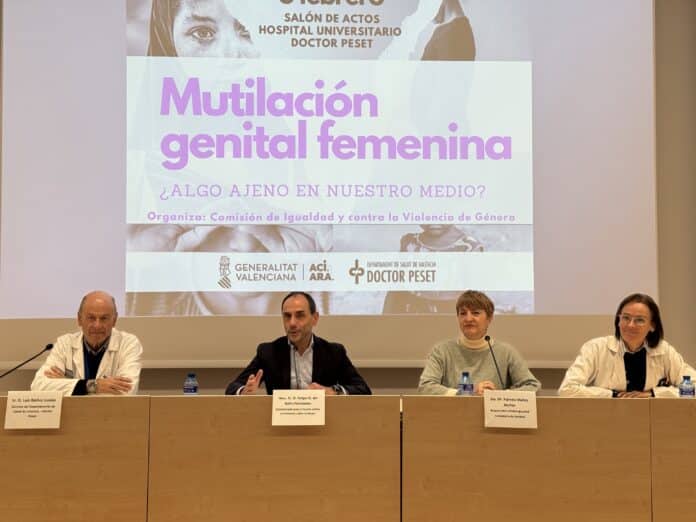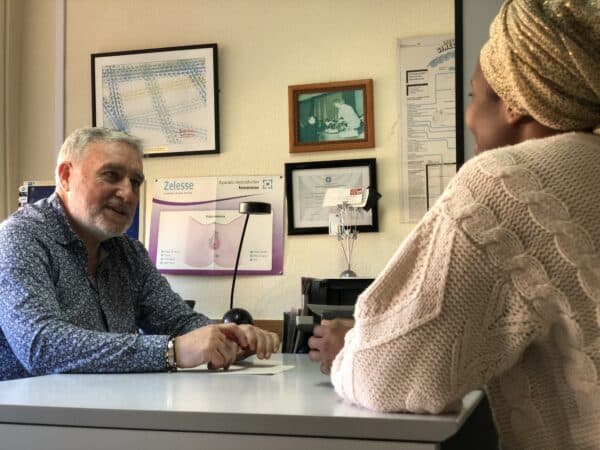
![]() Spanish
Spanish ![]() Dutch
Dutch ![]() French
French ![]() German
German ![]() Norwegian Bokmål
Norwegian Bokmål ![]() Polish
Polish ![]() Swedish
Swedish
The Ministry of Health has updated its Protocol for Healthcare in Cases of Female Genital Mutilation (FGM), originally published in 2016, to enhance case detection, streamline procedures, and protect nearly 1,300 at-risk minors living in the region. These girls face the threat of mutilation due to cultural practices in their countries of origin.
Key Updates in the Protocol
The updated protocol, soon to be available to healthcare professionals, introduces several significant measures:
New alert system in the Outpatient Information System (SIA) to improve monitoring of at-risk girls, particularly those whose mothers have undergone FGM.
Integrated consultation form in electronic medical records, allowing Gynecology departments to directly refer affected women to the Reference Unit for Reconstructive Surgery for Female Genital Mutilation in the Valencian Community, located at Doctor Peset University Hospital.
Since its establishment in 2016, the Reference Unit has provided care to 169 women and girls, performing 49 reconstructive surgeries to mitigate severe gynecological and genitourinary complications caused by FGM.
In 2024 alone, 22 women were assessed, including two minors who had suffered mutilation before arriving in the Valencian Community.
Comprehensive Support for Affected Women
Beyond surgical intervention, the Reference Unit provides psychosexual assistance as part of comprehensive healthcare services. Currently, 26 women are receiving ongoing care from a multidisciplinary team, which includes community-based health workers for additional support.
Among the women treated at the unit:
36.5% experienced gender-based violence in their home country.
30.7% were forced into marriage.
9.6% were victims of human trafficking.
Despite its low prevalence in Spain, FGM remains a grave violation of human rights, with lifelong physical and psychological consequences. Dr. Reyes Balanzá, head of the Gynecology Service at Doctor Peset University Hospital, emphasized the importance of continued healthcare training to improve prevention and intervention efforts.

Zero Tolerance and Awareness Efforts
To mark the International Day of Zero Tolerance for Female Genital Mutilation on February 6, the Equality and Gender Violence Commission of Doctor Peset University Hospital hosted a conference titled:
“Female Genital Mutilation: Something Foreign to Our Environment?”
Speakers included:
Felipe del Baño, Commissioner for the Fight Against Violence Against Women.
Palmira Muñoz, Head of the Equality Unit at the Ministry of Health.
Luis Ibáñez, Manager of the Valencia Health Department-Doctor Peset.
María Amparo Antonaya, Head of the Equality and Gender Violence Commission.
The event highlighted the urgent need to prevent FGM in minors at risk and addressed its physical, psychological, and legal consequences. Discussions also focused on the legal responsibilities of families and the obligations of healthcare professionals in identifying and reporting suspected or confirmed cases.
The updated protocol ensures that affected women receive multidisciplinary care, with coordinated efforts from Paediatrics, Family and Community Medicine, Gynaecology, Obstetrics, Midwifery, Nursing, Psychology, Social Work, and Public Health professionals. This collaborative approach enhances detection, assessment, and long-term support for survivors and those at risk.
By reinforcing these measures, the Ministry of Health reaffirms its commitment to protecting minors and eliminating FGM through prevention, education, and specialised care.
![]() Spanish
Spanish ![]() Dutch
Dutch ![]() French
French ![]() German
German ![]() Norwegian Bokmål
Norwegian Bokmål ![]() Polish
Polish ![]() Swedish
Swedish











